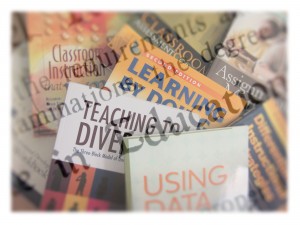 It has occurred a number of times over my career that I have supervised a first year teacher. I have always found something exciting about that. Typically, these individuals display hopeful enthusiasm combined with a measure of anxiety and an incredible amount of energy. Their youthful optimism and determination to make a difference inspires me to go the extra mile in helping to make their first year in the profession a highly successful one.
It has occurred a number of times over my career that I have supervised a first year teacher. I have always found something exciting about that. Typically, these individuals display hopeful enthusiasm combined with a measure of anxiety and an incredible amount of energy. Their youthful optimism and determination to make a difference inspires me to go the extra mile in helping to make their first year in the profession a highly successful one.
The degree of influence the principal exerts on the school-community is well documented. The principal of a new teacher is in a unique position to significantly impact on that person’s career. Nurturing these individuals takes time, requires a great deal of understanding, a supportive attitude, and sensitivity to the needs of the teacher while at the same time keeping the focus on student learning.
While every situation is unique, there are some essential functions that an educational leader must fulfill in supporting the beginning teacher:
Know the teacher’s learning style.
We talk about how students have unique needs and learning styles. Adults are no different. The best thing about having a conversation with teachers about their own learning styles is that they are likely more self aware on this topic than any other segment of the population. They know what works for them and possess the vocabulary to articulate it. As principal, I need to know how my teachers learn. Only then can I effectivley support their professional growth and learning.
Build the Relationship.
When I am having a conversation with a teacher about professional practice, I want the teacher to see that I am completely invested in that discussion and will do whatever I can to enhance the classroom learning experience.
The foundation of any relationship is trust. The beginning teacher needs to know that you will tolerate “mistakes” with a view to using them as the basis of lessons on how to improve instructional practice. Help the teacher to see, through your actions, that your priority is to help that individual grow professionally. Prove it by always following through on the things you have pledged to do to achieve that.
Facilitate networking.
A beginning teacher is not likely to know of all the resources upon which they can rely. As I bring resource people into the school – consultants, co-ordinators, technicians, clinicians, and so on – I make sure they take some time to connect with the new teacher. It is not difficult to arrange for a 15 minute meeting where the individual can meet face to face with the teacher and explain his or her role in supporting student learning. I have found that these resource people are always grateful for the chance to make the teacher aware of their services, and it often proves to be the initial step in building a supportive professional relationship.
Creating mentorship opportunities and the chance to network with colleagues is an excellent way to support the beginning teacher. The well connected principal will exploit opportunities for collaboration between the new teacher and those from whom he or she can learn and seek support.
Articulate procedures.
Experienced principals know how important it is to have procedures in place to govern common every day school based practices. With time, they become our routines and we rarely give them second thought. Yet, new teachers don’t know the procedures for ordering materials, getting field trip approvals, submitting leave forms, and the dozens of day to day activities that we may take for granted. This is easily dealt with by creating a staff handbook that concisely details all of these routines. No teacher should feel lost when it comes to daily procedures; there is no reason for this to ever cause anxiety.
Recognize that the beginning teacher may not be aware of the critically important role played by support staff. Ensure the teacher knows what he or she can ask of the school secretary or custodian.
Handle with Care
The above functions indeed apply to all teachers and not just those starting out in the profession. However, the needs of beginning teachers are amplified during that important first year in the classroom. As principal, you have significant influence on the direction of that person’s career. True educational leaders will seize the opportunity and create the conditions for success.

